- Home/
- #Reimagine Telethon: How Can We Protect The Vulnerable Children Affected By COVID-19? Experts, Social Workers & Celebrities Discuss
#Reimagine Telethon: How Can We Protect The Vulnerable Children Affected By COVID-19? Experts, Social Workers & Celebrities Discuss
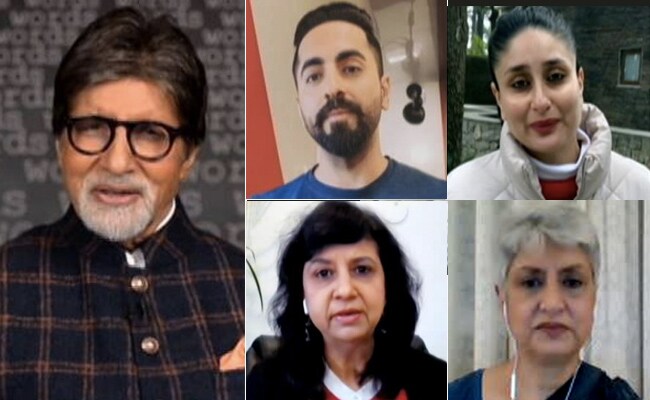
Children are the forgotten victims of the Coronavirus pandemic, they are the ones who are severely affected - not just their health but the coronavirus crisis have caused many to drop out of school. Family incomes are badly hit and so is children's nutrition and health including timely immunisation. Without immediate funding and key lifesaving interventions like health care, nutrition, and immunization, it is being expected that an additional 1,600 children could die in India everyday over the next six months as the COVID-19 pandemic continues to weaken health systems and disrupt routine services.
To cope up with such a reality and protect our most vulnerable children, NDTV and UNICEF have come together for a special campaign, 'Reimagine Our Children's Future.'
As a part of the campaign, a 2-hour special telethon was organised and experts, social workers and celebrities came together to discuss on how together the community can help protect the future of India - children. Joining the telethon with NDTV's Dr Prannoy Roy, Dr Yasmin Ali Haque, Country Representative, UNICEF India explained the current crisis in terms of children's health and the theme of the campaign.
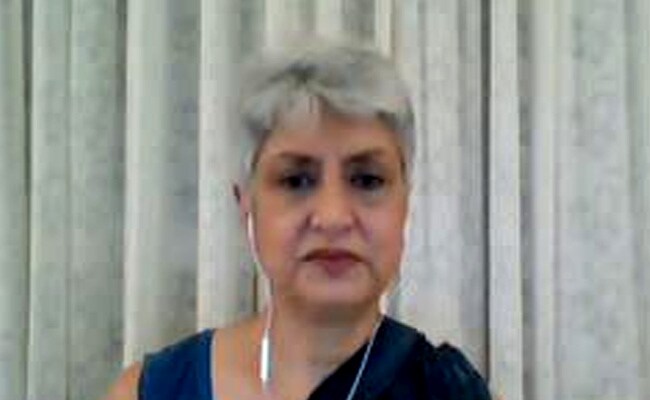
She said,
Children are directly affected by the coronavirus pandemic and it is very important that we see how child rights are being affected. Parents have lost livelihood and had to move to another places. 300 million children are not in school at the moment and a very small group is been able to access online learning. They don't have access to basic things. For all these reasons it is important to put our children at the forefront. The current affect on our children can have a ripple affect and can harm us later in a very silent way.
Amitabh Bachchan, UNICEF Goodwill Ambassador also lent support to the initiative and added,
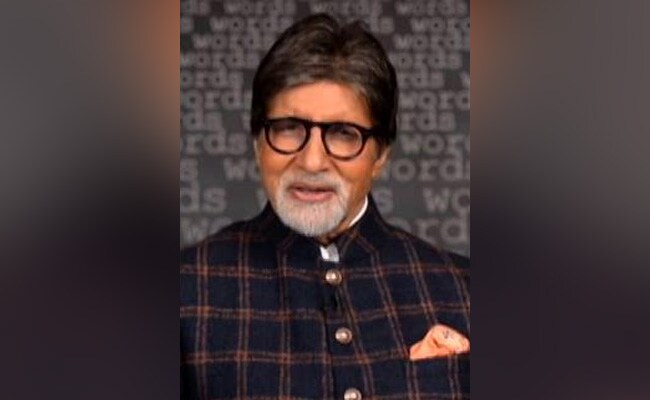
Children must get the life saving vaccines in able to prevent them from diseases. Imagine how wonderful it would be if our every child was immunised. Let's alljoin together to reimagine a world where every child survives and thrives, is healthy and immunised. For this, we need to work together especially now, during and after the COVID-19 pandemic. As a parent, I would urge you to take your child for scheduled immunisation and take card with you, always wear a mask, maintain distancing and wash your hands frequently.
Sharing an essential message for all and why there is a need to reimagine a different tomorrow for India's children, Trisha, Celebrity Advocate, said,
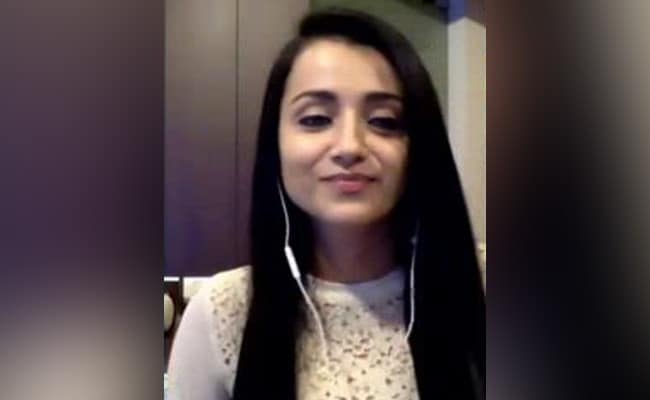
I had a great opportunity to attend virtual field visit organised by UNICEF; this virtual visit was fun and interactive. Not only the problems were addressed but there were solutions. Children discussed initiatives they have taken to overcome stigmatisation, raising awareness against COVID, writing petition to Chief Minister. Children talked about inaccessibility to smart phones and laptops forcing children to drop out and child marriages. Millions of children are losing on school hours and their talent. Children from vulnerable communities are at a higher risk and pushed to child labour and trafficking. We need to protect them.
Highlighting how the pandemic has created an education crisis in the country, Suman Sachdeva, Education Specialist, UNICEF India said,
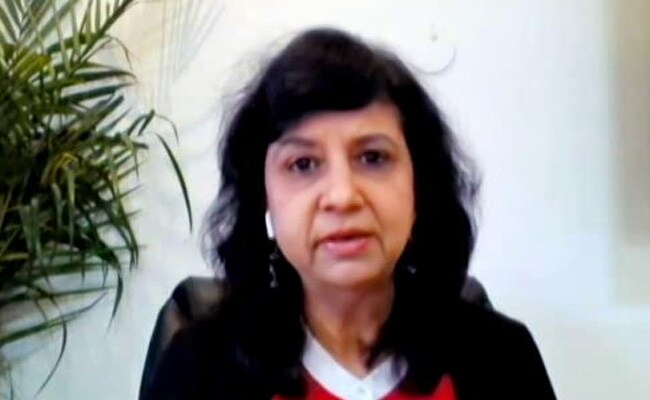
School closures in India, really are threatening the futures of millions of children, especially the most marginalized are paying the heaviest price. I'm actually referring to 286 million children in India. Most of them are from the marginalised sections, missing on classroom based learning. I'm talking about children coming from remote villages from a state like Rajasthan, which is rampant for its child marriages and for poverty. Or the children who lives in the tribal villages of Jharkhand, or children from indigenous communities in Gujarat and Assam, or the poorest of the poor in Bihar, or the children from the urban slums in Maharashtra. You see, India is the land of diversity. And so is the diversity in this marginalisation of community and children. Pandemic has hit all of them, irrespective of caste, class, gender, or location. We see that COVID-19 has deepened the learning crisis for all children.
Talking about recent UNICEF research done on children, Ms Sachdeva further said that the coronavirus crisis will have both immediate and long-term impact on the learning of children. She added,
Closing of anganwadis, schools, all kinds of institutions have really put a break on all forms of learning in India. Efforts are being made to continue learning using digital technology, but this has also brought to the fore, a deep digital divide. In particularly we're seeing the children are most affected by access to technology and infrastructure. Access to learning time, access to parental support. Most of these children are from first-generation and technology challenged parents. Unfortunately, we are expecting at least 25 per cent of dropouts post pandemic. This is the latest research of UNICEF conducted in seven states of India. Post pandemic, what we fear in India is that many children, especially the girls, will never come back to school. And if they do come back, they'll have very poor competencies. The transitions from school to higher education and to work force is also going to be a very, very mixed scenario. In short, gains made over past decade may all be lost.
Reiterating the importance of learning in coronavirus times, Shaheen Mistri, CEO, Teach For India said,
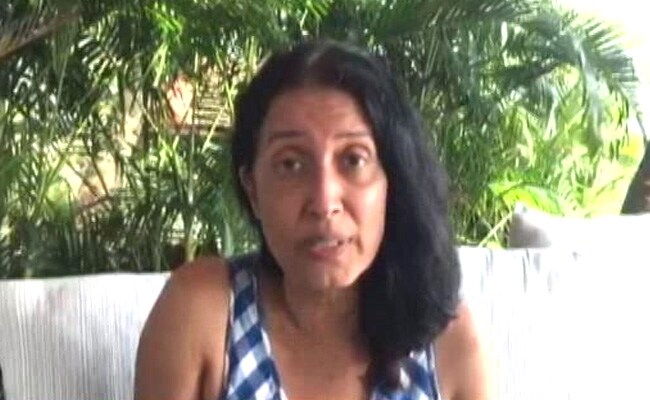
Our kids need to keep learning, the need for education is more than ever. What's really getting in the way of that is hardware and putting hardware in the hands of children, especially the ones from low income backgrounds. However tough it is, we need to do this. We need to raise the funds. We need to give every children equal opportunities. We need leaders for our children, who will talk to them, who will listen to them, who will help them find solutions and who above all are going to do whatever it takes to keep them learning.
Kareena Kapoor Khan, UNICEF Celebrity Advocate also joined the #Reimagine Telethon and said India needs to reimagine education in a post-pandemic world. She added,
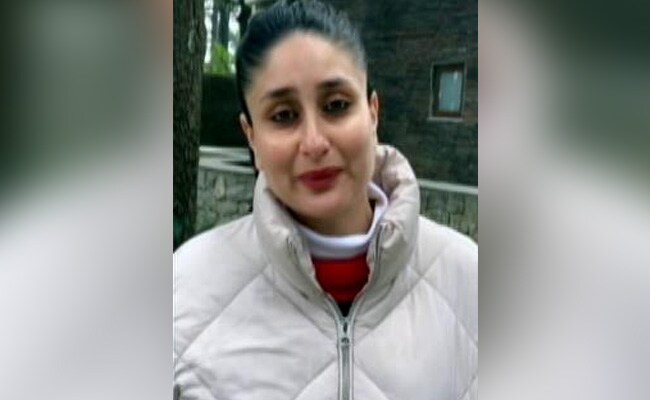
The subject of education and making sure that every child has the opportunity to learn, is something very close to my heart. But this year as you all know schools have been closed for more than 7 months due to the pandemic. There is a learning crises with millions of children missing out on education in the country. We know that not every child has a computer or a smart phone with internet or even TV. Children are missing out an essential learning. The chances are many of them specially girls are not likely to even go back to the school. UNICEF is working with the government in partner with many states to reach these vulnerable children and ensure that there is continuity in learning process, even when they are at home. I urge, everyone to contribute towards this cause nd help support our most vulnerable children. Let us together make a difference for every child.
Talking about violence and coronavirus pandemic, Ayushmann Khurrana, Celebrity Advocate, UNICEF India on the other hand added,
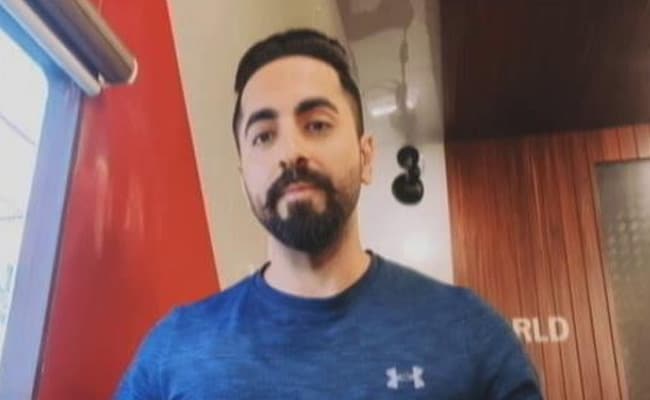
COVID-19 has not been easy for anyone, especially our children. The crisis is making them even more vulnerable to violence. We can prevent this by making them aware. We as men and boys have the responsibility to be better role models. As UNICEF celebrity advocate, I am committed to end violence against children, I would like you to join in doing so. You can support it by lending your voice, money. Every support counts. Let us pledge to end violence against children.
Stressing on the point that the crisis of child protection is not new in India, Atiya Bose, Executive Director, Aangan said,
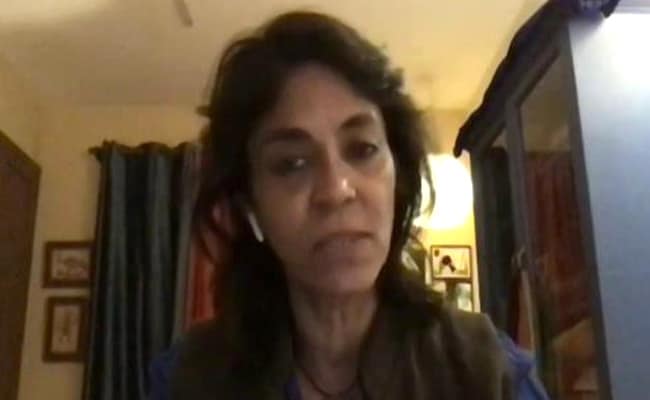
India has been a global leader in child labour, child marriage and child trafficking long before the COVID-19 pandemic hit. COVID-19 crisis has exacerbated it. At Aangan our understanding is that vulnerable children come from vulnerable family. They aren't in a vacuum, you have to focus on strengthening families. At a time of crisis when the government has been absent in terms of protection issues, our work has been on where children are, how do we have people there to protect them. Child protection is a human system, it requires bodies on ground. We work with 6,000 women in 11,000 villages. Those women say, what has happened with us should not be repeated with our children.
Justice Madan Lokur, Former Judge, Supreme Court of India added,
There are many concerns - education is primary, immunisation of children is another. We have issues of missing children, domestic violence, child marriages, there is no shortage of issues. There has to be continuous awareness programmes. Judiciary has to be trained and sensitised about right s of children. People from civil society must also know.
Talking how coronavirus has affected lives across the world, Luigi D'Aquino, Chief of Health, UNICEF India said,
I think countries around the world have learned and experienced different degrees. The good news in a way is that, as we continue living with this pandemic, we also improve day by day in living with it, and adjust our lives to it. We at UNICEF dream an aspiration & a vision. We will work and work to make sure that communities and families everywhere are aware of what are the key behaviours, what are the key practices they need to take to ensure healthy pregnancies, healthy delivery, and a good follow up of the babies. As they grow through their life. We work to have healthcare workers, nurses, doctors, and also the community health care workers well-trained, motivated, safe and protected during COVID-19. And ready to take action to support pregnant women, babies, and children, throughout the stage of pregnancy, delivery and then growth of these children.
Lending support to the initiative, Vikas Srivastava, MD, Johnson & Johnson India added,
We believe that good health is the foundation of a good life, and that starts at birth itself. Since 2008, we have partnered with Indian Academy of Paediatrics who address a critical concern in India, reducing infant mortality. And one of the leading causes of infant mortality is birth asphyxia, a condition where the newborn is deprived of oxygen at birth. Together we have developed this program called Neo-Natal Resuscitation, through which over 200,000 healthcare professionals have been trained. And it has led to ensuring that at every delivery, the attempt is to have one, at least one, healthcare worker trained in newborn care, so lives can be saved.
Sharmila Tagore, UNICEF Supporter & Actor said that in any pandemic children become the worst victims as they have no voice and as a result their plight doesn't take center stage. She said,
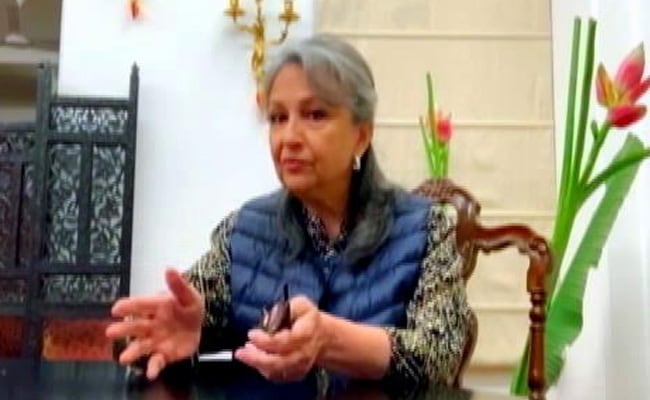
This has been a tough year for everyone, especially for children. We should put the children first. Schools have been closed for more than seven months. And that has impacted children greatly. And we've always known that children who are the weakest and the most susceptible suffered the most. And this includes the children living with HIV and AIDS. Families fear contracting the disease and are not venturing out, not even to get their children vaccinated. And then there have been the lockdown where access to services is restricted or simply not available. There are transport problems, financial problems, all of which prevent people from accessing the much needed life saving treatment.
She further added,
The pandemic has exposed the huge disparities in society. The scale of problem is not just limited to one aspect of life. We have seen that job losses and socio-economic crisis has affected families and children in many, many ways. And this is not going away anytime soon, at least not till we have the vaccine. Also the impact of the pandemic will be seen for a very long time. Perhaps even after we have the vaccine. It's a crisis that is affecting children all over India. I believe we have 290 million children, not in schools for these months. Their learning is affected. Many may be stressed and mental health will be a huge concern. We know that when schools reopen it will not be business as usual, as children will lead time to catch up and get back to speed. We need to plan for that and to help children and teachers to cope. Disruptions to key services and increasing poverty pose the biggest threat to children. The longer the crisis persists, the deeper the impact on children's education, health, nutrition, and well-being the future of an entire generation is at risk. As duty bearers, we should put children first because they are the most vulnerable. We need to come together, support, take action to protect the present and the future of an entire generation.
also read
In Karnataka's Chikkballapur, Nutritional Rehabilitation Centres Are Pulling Children Out Of Malnutrition
Reported by Maya Sharma, Written by Aastha AhujaHow Odisha Government Is Taking The School To Children's Home, Ensuring Learning During COVID-19 Pandemic
Reported by Saurabh Gupta, Written by Aastha Ahuja
Let’s reimagine a new future for India’s children affected by the COVID-19 crisis
Money Raised So Far
Highlights
Show MoreAbout The Partner
UNICEF India is committed in its continued support to the Government in this extraordinary journey of development to reach every child everywhere in India. Our goal is to enable every child born in India to have the best start in life, to thrive and to develop to her or his full potential. To achieve this we use our technical expertise together with partners to tackle the root of several, deeply entrenched structural challenges.
UNICEF works to promote and protect the rights of children across India. We have spent 70 years in India working to improve the lives of children and their families. With some 450 staff members working in 17 states that together cover 90 per cent of India’s child population - largest field presence among UN agencies – we are well positioned to reach the country’s most vulnerable children.
In response to the COVID-19 pandemic, UNICEF has launched Reimagine – an urgent appeal to governments, the public, donors and the private sector to support UNICEF’s efforts to respond, recover and reimagine a world severely impacted by COVID-19. UNICEF India relies on the support and donations from businesses and individuals to sustain and expand health, nutrition, water and sanitation, education and child protection programmes for all girls and boys in India




